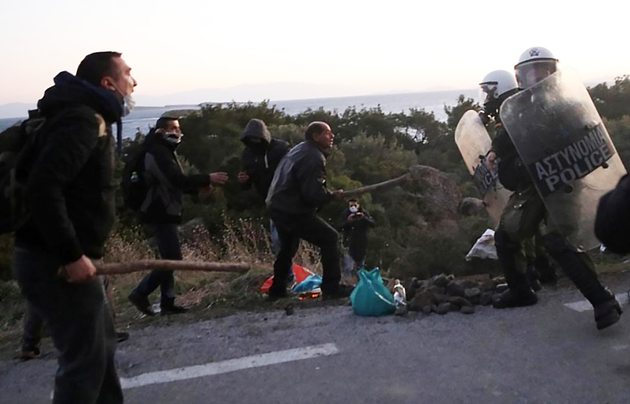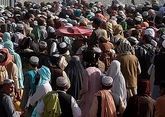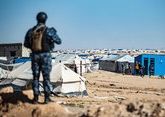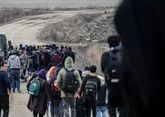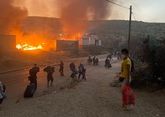Clashes have broken out on the Greek islands of Lesbos and Chios between local law enforcement officials and local residents preventing the arrival of refugees from Africa, the Middle East and Central Asia. According to local sources, not only the islanders took part on clashes, but also Greek citizens from the mainland and other islands who arrived to express protest.
Vestnik Kavkaza was told that the clashes have spontaneously started a few days ago protesting the construction of new migrant camps. Strictly speaking, the protesters slightly confused cause and effect, believing that if there were no camps, there would not be so much refugees. In this light, it is worth noting the poor communication of local authorities with society. The fact is that building new camps is Greece's obligation under the EU laws. The previous camps caused a lot of complaints - the refugees lacked water, sanitation and hygiene conditions were bad. Speaking about the camps, human rights activists did not shy away to use the word 'detention camp', which, of course, was an exaggeration to characterize the living conditions of refugees.
At first, the local authorities were "snapped" with a reminder that the refugees didn’t have even half of the camp conditions in their homeland, which was not far from the truth, but later retreated under the fire of powerful criticism and possible financial revenues - they had to build new, more comfortable camps with improved conditions. But money and social construction mean corruption - there are few new camps, the agreement on which was reached in the autumn-winter of last year. Now they had to "remember" about it and start construction work.
At the same time, the authorities "forgot" to explain to local residents that the new camps will replace the old ones, their number will not increase. With such an "information blockade," the locals decided there would be more camps, respectively, more refugees, which pretty much disturbed quiet life of Chios and Lesbos residents. And in general, the news of refugee camps, or the influx of refugees into the Greek islands, could not but negatively affect tourism. And it's not just stealing a bucket from the yard or cereals from the store, it's much more serious. After all, tourism is almost the main, or even the only sphere of income for islanders: fewer tourists mean less money.
It seems that representatives of Hellas' nationalist circles decided to take advantage of the islands' protest mood. The "thematic" protests were also held in major cities of continental Greece, after which some of the participants went to Lesbos and Chios - in any case, local residents mention their compatriots' participation in clashes with police.
The protesters gathered early in the morning on Tuesday to block the passage of construction equipment. On Lesbos, they even tried to completely block the port with garbage trucks, and also set fire to the garbage cans. Riot police arrived in the crowded places, which were mostly territories selected for the construction of new refugee camps. After a series of warnings, the security forces had to use tear gas and sound grenades. As a result, about ten people were injured. Some of them were hospitalized.
Local sources told Vestnik Kavkaza that the protests were arranged by the most radical opponents of hosting illegal immigrants. No one likes hosting refugees in general, but the majority treat them with sympathy and understanding. This part of the Greek population tends to blame their own local authorities for problems, which do not take these problems seriously. Others blame the central government of Greece, which does not facilitate the rapid transport of refugees from the islands to the mainland. Some go further and blame the EU leadership for the crisis, which forced a refugee program on Athens and the islands, being in no hurry to carry out its part of the program to resettle these refugees in more prosperous European countries than Greece, which need the influx of people much more than Greece.
Finally, the outbreak of coronavirus arrigavated the situation - the entire global population is agitated, and the Greeks are no exception. And these refugees are not from prosperous countries. The authorities guarantee that none of the new arrivals escapes strict medical supervision. But it's hard to imagine how they will do this in crowded camps. After the clashes, government officials finally unveiled their plan of action. Crowded camps in Lesbos, Chios, Kos and other islands will be closed. But only after almost 40 thousand inhabitants of the camps will be transported from there to the mainland. Instead of the liquidated ones, new closed camps will be built, which will be able to host 20 thousand people for a maximum of three months. The locals don't happy with the government plan, but the fact that the new camps will be closed, that is, under guard, somewhat de-escalated the protest mood.
Meanwhile, the situation with illegal immigrants in Greece is really difficult, and you cannot attribute it to the negative emotions of the islanders alone. In reports submitted to the European Union and the Council of Europe, the word "catastrophic" in relation to the situation with illegal immigrants has been used repeatedly. A year ago, the Council of Europe demanded that emergency measures be taken in connection with the terrible conditions in which thousands of people live. According to open data, last year 75 thousand people crossed illegally the border between Turkey and Greece - almost twice as many as in 2018. And this year, it is expected that another 100 thousand illegal migrants from Africa and Asia will arrive in Greece. And as crisis worsens, it will become clear whether the Greeks will cope with the new influx of illegal immigrants.
